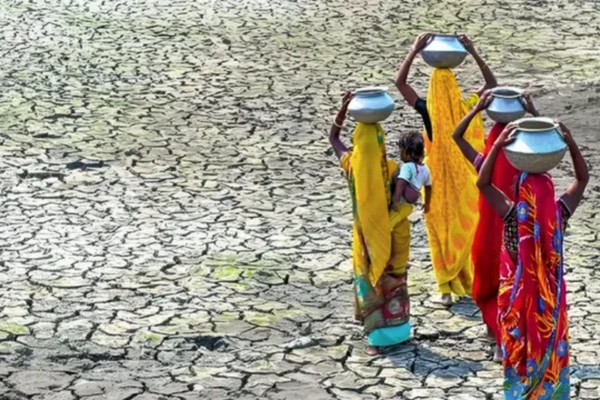Right to Be Free from Climate Change impacts was affirmed by the Supreme Court, highlighting Articles 14 and 21 of the Constitution.
Case Background:
- A writ petition was filed concerning the conservation of the critically endangered Great Indian Bustard (GIB).
- The plea sought protection measures for GIB and Lesser Florican, including the formulation of an emergency response plan and the modification of existing orders restricting the setting up of overhead transmission lines in their habitat.
- The court discussed provisions (Article 48A and Clause (g) of Article 51A) regarding environmental protection, including forests, wildlife, lakes, and rivers, in the context of preserving the GIB from extinction.
Supreme Court’s Ruling:
- The apex court underscored the intersection of climate change and human rights.
- The judgment emphasized the holistic interpretation of environmental rights under Article 21, aligning with earlier judicial interpretations recognizing the right to a clean environment as part of the right to life.
- The ruling expands the scope of Article 14, highlighting the proactive stance of the judiciary in addressing environmental and climate justice issues.
- These articles are important sources of the right to a clean environment and the right against the adverse effects of climate change.
- Without a stable, unimpacted environment, the right to life remains incomplete.
- The inability of underserved communities to adapt to climate change or cope with its effects violates the right to life as well as the right to equality.
Important SC judgments regarding constitutionalization of environmental problems:
- In Subhash Kumar Vs. State of Bihar and Ors (1991), the Supreme Court expanded the scope of the Article 21 to include the right to a wholesome, clean, and decent environment, highlighting the correlation between quality of life and environmental conditions.
- In M.C. Mehta v. Kamal Nath (1996), the court stated that any disturbance to fundamental environmental elements like air, water, and soil poses hazards to “life” within the scope of Article 21.
- In Virender Gaur v. State of Haryana (1994), the court affirmed that the right to a clean environment is an essential aspect of the right to a healthy life.
Constitutional Provisions related to Environment
- Article 48A of the Constitution provides that the State shall endeavour to protect and improve the environment and to safeguard the forests and wildlife of the country.
- Clause (g) of Article 51A stipulates that it shall be the duty of every citizen of India to protect and improve the natural environment including forests, lakes, rivers and wildlife, and to have compassion for living creatures.
- Although these are not justiciable provisions of the Constitution, they are indications that the Constitution recognises the importance of the natural world.
Ref:Source
| UPSC IAS Preparation Resources | |
| Current Affairs Analysis | Topperspedia |
| GS Shots | Simply Explained |
| Daily Flash Cards | Daily Quiz |



